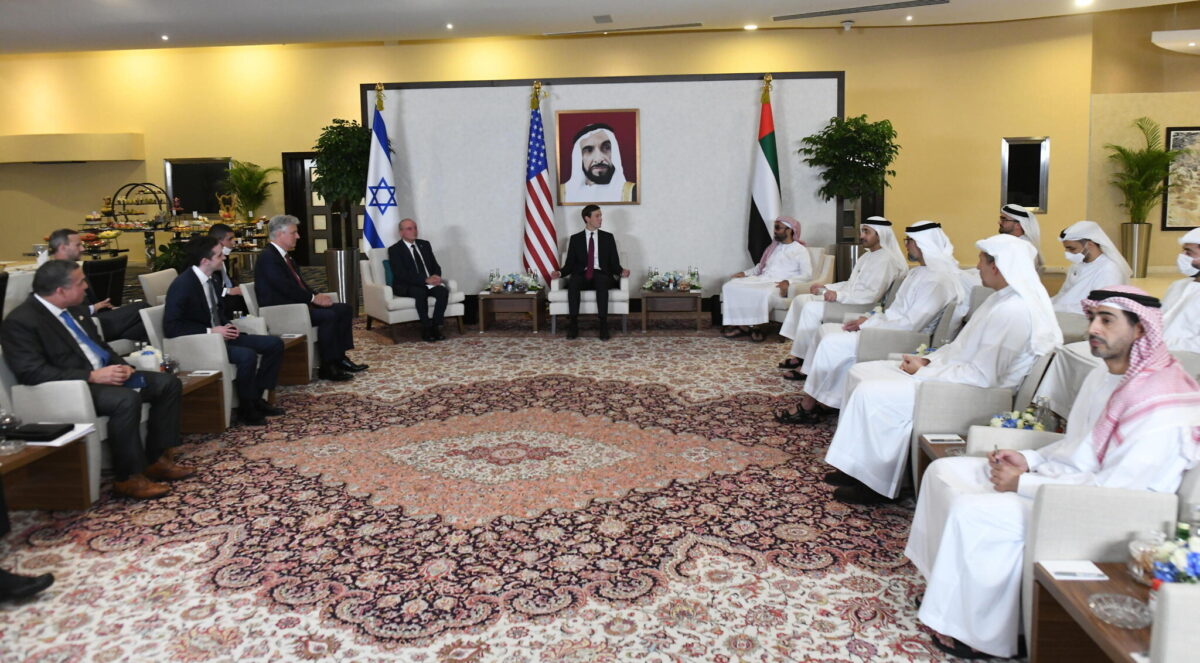Jared Kushner, President Donald Trump’s senior advisor and son-in-law, declared yesterday that a script for a “new Middle East” is currently being written.
This is not a freshly-minted expression. It was coined by the late Shimon Peres after the Olso accords were signed in August 1993. Peres, Israel’s former defence minister, foreign minister, prime minister and president, envisioned a new epoch in which Israel would be integrated politically and economically into the region.
Much to Peres’ disappointment, this didn’t really happen after Oslo, but 27 years on, Kushner thinks that Israel may be on the brink of achieving this elusive goal. Kushner resurrected Peres’ phrase on August 31 as a joint Israeli-American delegation flew to the United Arab Emirates abroad the first El Al Airlines flight from Tel Aviv to Abu Dhabi.
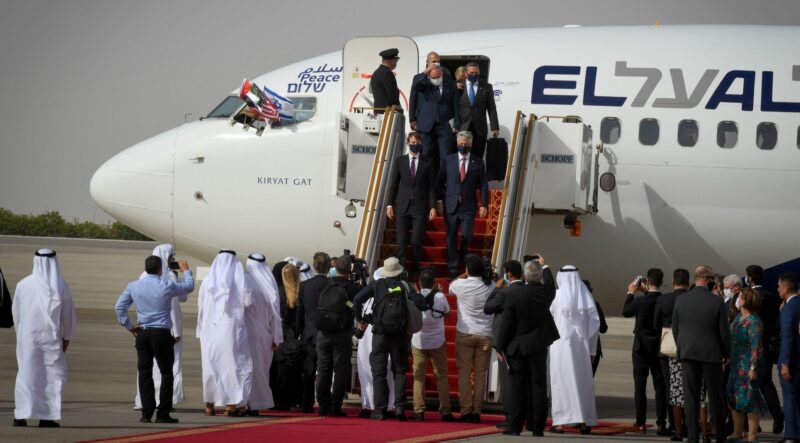
The aircraft reached its destination by crossing Saudi Arabian airspace, an unprecedented occurrence. On September 2, Saudi Arabia announced it will allow flights from all countries, including Israel, to fly over its territory. Prime Minister Benjamin Netanyahu called the announcement a “huge breakthrough” in Israel’s efforts to forge friendly relations with Arab countries and the Muslim world.
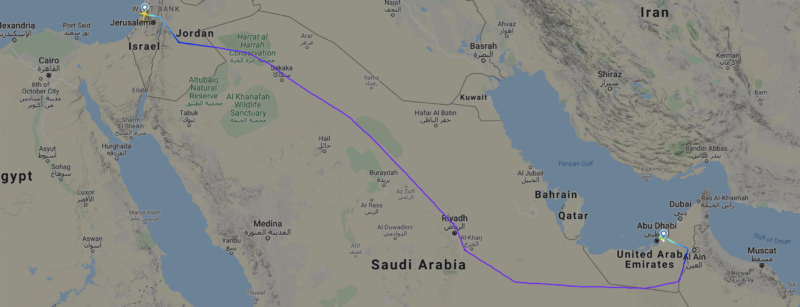
Nevertheless, Israel is still far from attaining that objective following the United Arab Emirates’ decision to normalize ties with Israel, an event that was triumphantly publicized by Trump on August 13 and hailed as “historic” by Netanyahu.
As Kushner indicated on September 2, after whirlwind trips to Saudi Arabia and Bahrain, conservative Arab states are not ready yet to formally recognize Israel and commit to a normalization process with the Israeli government.
U.S. Secretary of State Mike Pompeo recently visited several Arab countries — Sudan, Oman and Bahrain — and reached the same conclusion. He returned to Washington empty handed, having been told that Israel’s conflict with the Palestinians must be resolved before normalization is possible.
So talk about a “new” Middle East is premature at this point. Israel and the Palestinians remain locked in a perennial conflict, with the Palestinian Authority having bitterly condemned Israel’s pact with the United Arab Emirates. Netanyahu’s assertion that he had merely suspended his plan to annex up to one-third of the West Bank only widened the gap between Israel and the Palestinians.
Elsewhere in the Middle East, it was business as usual after Israel’s agreement with the United Arab Emirates.
Just hours after the El Al passenger plane took off for the three hour and 20 minute trip to Abu Dhabi, Israel fired a barrage of missiles at Iranian-backed Shi’a militias in southern Syria, killing two Syrian soldiers and three foreign fighters.
And on the same day, Israel and Hamas — the governing authority in the Israeli-besieged Gaza Strip — agreed to yet another ceasefire after weeks of cross-border fighting during which hundreds of incendiary balloons were released into Israeli territory to burn fields and cause a sense of unease and vulnerability.
So has anything really substantially changed in the region? And is Israel’s agreement with the United Arab Emirates just a blip on the screen, or is it a major development that portends a new era in the Middle East?
If Kushner can be believed, the future is promising. On September 1, he predicted that 22 Arab states could eventually recognize Israel. “I believe that it is logical for them to do it, and I believe it is the right thing to do over time,” he declared.
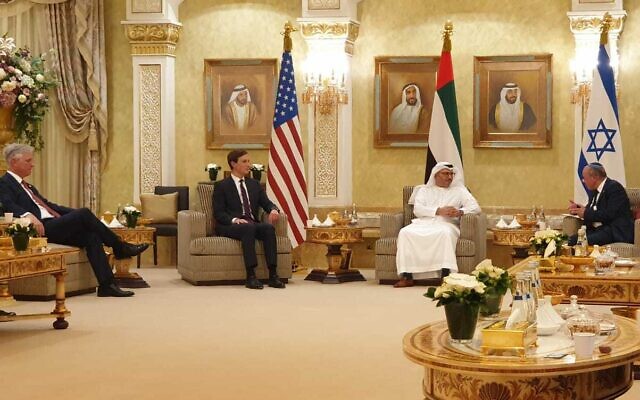
He added that a “vocal majority” of Arab states will normalize relations with Israel, leaving the “vocal minority” that opposes normalization “more and more isolated.” Within months, another Arab country will establish diplomatic relations with Israel, he went on to say, without mentioning which one.
Kushner acknowledged that Netanyahu will raise the issue of annexation again, but not in the “near future.”
The director of the United Arab Emiraates’ Foreign Ministry’s policy planning department, Jamal al-Musharakh, said he had received assurances from the United States that Israel will not revive its annexation scheme.
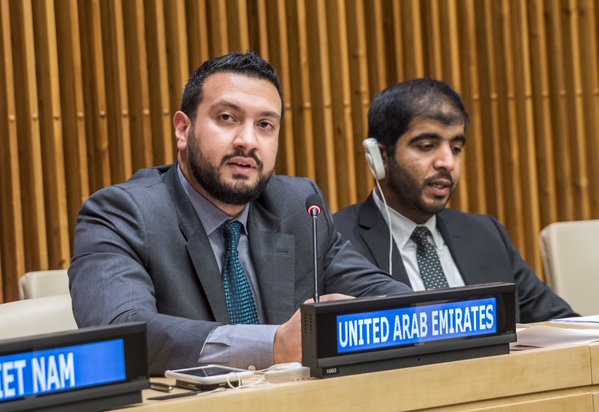
Claiming that the United Arab Emirates has not betrayed the Palestinians, he said,”We remain with the Arab consensus and Arab resolutions. What we did was halt the annexation. The ultimate end solution is to find a sustainable solution between the Israelis and the Palestinians.”
He said his government has “not backed down one step, one millimeter,” from its support of a two-state solution.
From a strictly bilateral perspective, Israel and the United Arab Emirates — a federation of seven sheikhdoms on the Arabian Peninsula — have already made progress in forging what can and may be a mutually beneficial relationship.
On August 29, the leader of the United Arab Emirates, Sheikh Khalifa bin Zayed al-Nahyan, issued a decree officially abolishing a 1972 law boycotting Israel, thereby allowing trade and financial agreements between the two countries.
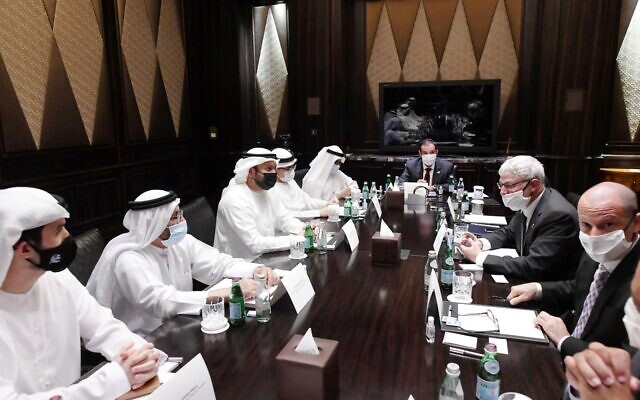
En route to Abu Dhabi, Netanyahu’s national security advisor and the head of the Israeli delegation, Meir Ben-Shabbat, said, “We came here to transform a vision into a reality. There are no limits to the cooperation we can develop in the fields of science, innovation, tourism, aviation, agriculture, energy and many other areas.”
Robert O’Brien, Trump’s national security advisor, claimed that the emerging partnership between Israel’s vaunted high-tech industry and the United Arab Emirates’ economic clout will be “truly incredible for the Middle East.”
Musharakh was upbeat as well. “If I had to summarize the last couple of days, two words would come to mind: historic and hopeful,” he said.
Bilateral working groups have discussed topics ranging from trade to cooperation in health and technology, he noted. “The path toward peace and prosperity is through cooperation,” Musharakh said. “Stability is the region is essential. This is not only beneficial for our two countries, but for the wider region.”
At this early stage, it remains to be seen when embassies will be opened, or when direct flights will start. “We want it to happen sooner rather than later,” he said.
There are several fields in which Israel and the United Arab Emirates can fruitfully engage.
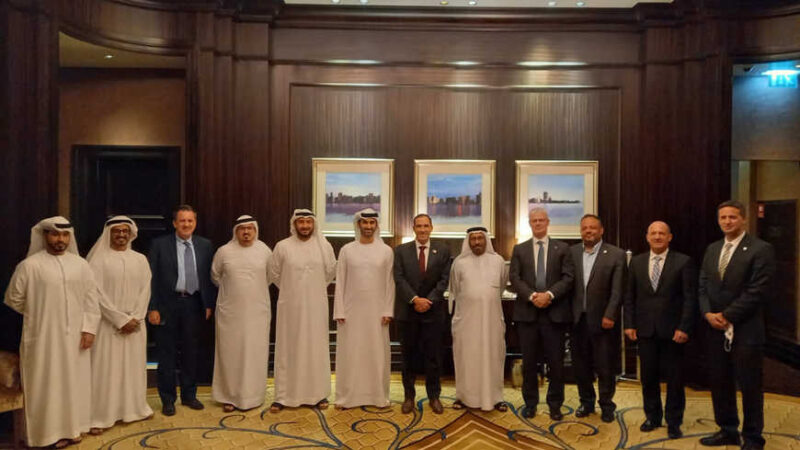
Like Israel, the United Arab Emirates is dependent on desalinated water. Israeli companies have built numerous desalination plants in Israel and abroad, and this technology, though expensive, is easily transferrable.
Israel is a leader in desert agriculture, a specialty that could be of great value to a parched nation with precious little arable land.
Israel’s expertise in cyber security and COVID-19 research could be very helpful, too.
Once aviation agreements are signed, a flood of Israeli tourists could inundate the United Arab Emirates, though it’s debatable how many of its citizens would want to visit Israel. Israel’s previous peace treaties with Egypt and Jordan in 1979 and 1994 convinced very few Egyptians and Jordanians to visit Israel.
Israel could well become a buyer of Emirati oil, while the United Arab Emirates may be interested in acquiring Israeli military equipment.
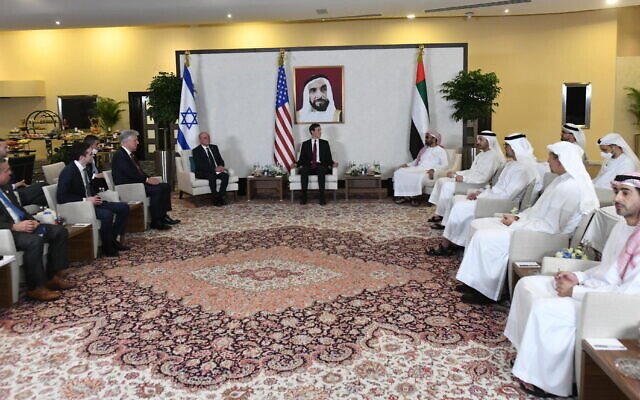
The horizons are virtually limitless if Israel’s normalization agreement with the United Arab Emirates is not only a flash in the pan.
Only then will we know whether a “new Middle East,” the fond dream of Shimon Peres and Jared Kushner, has finally emerged.
